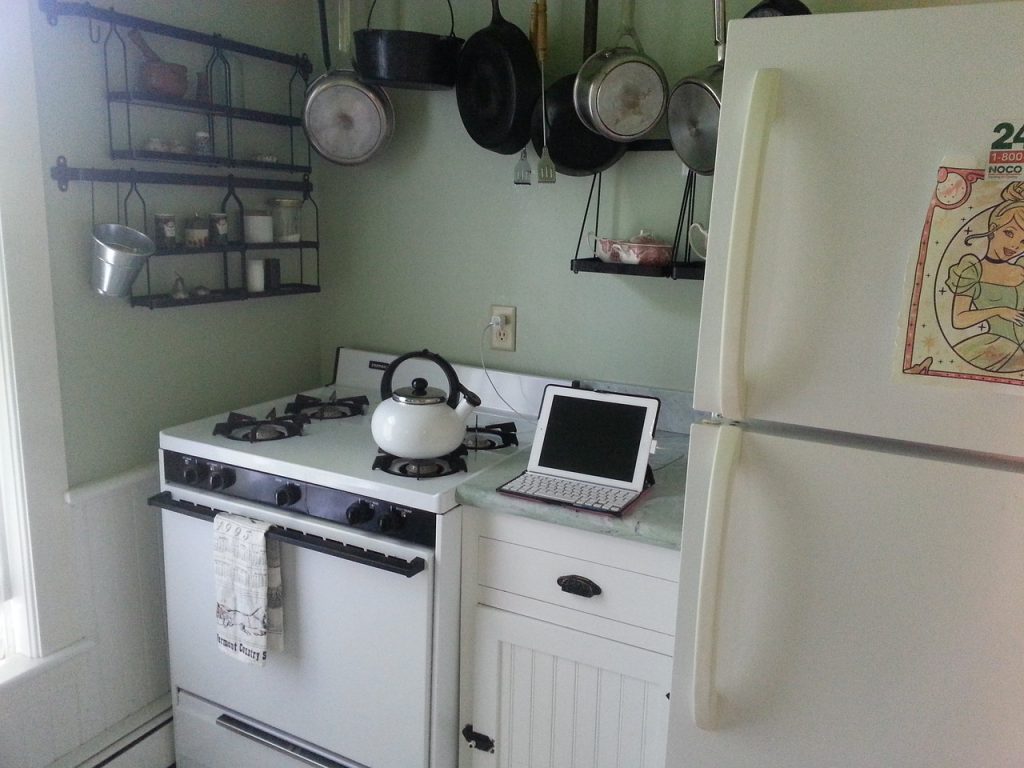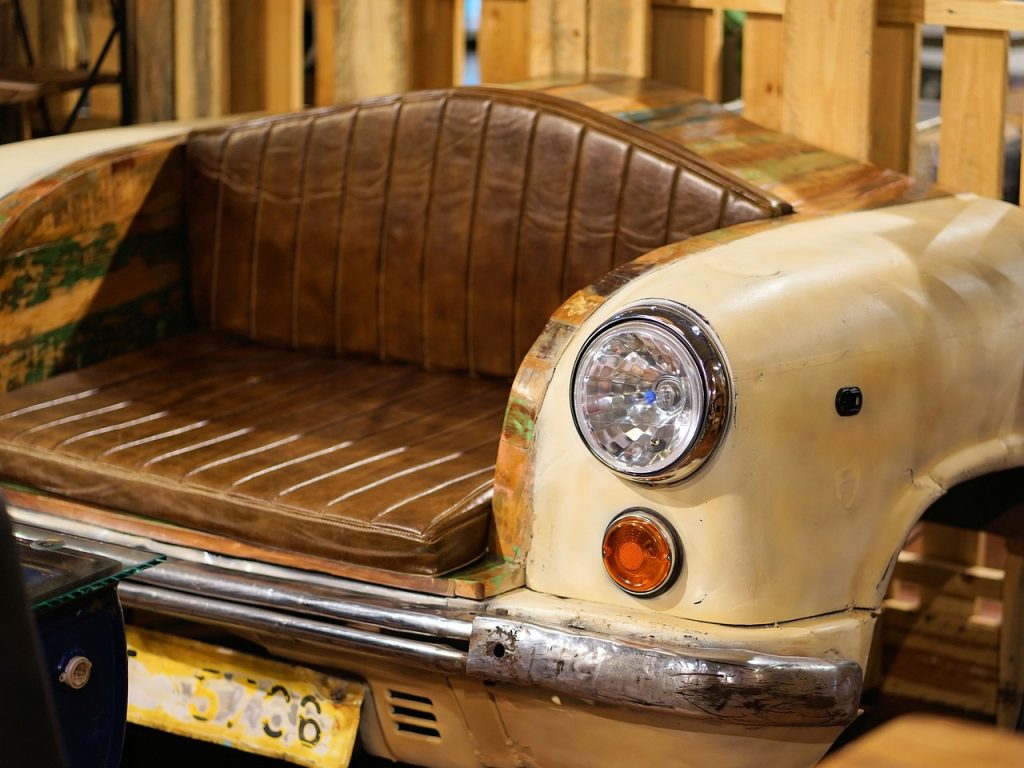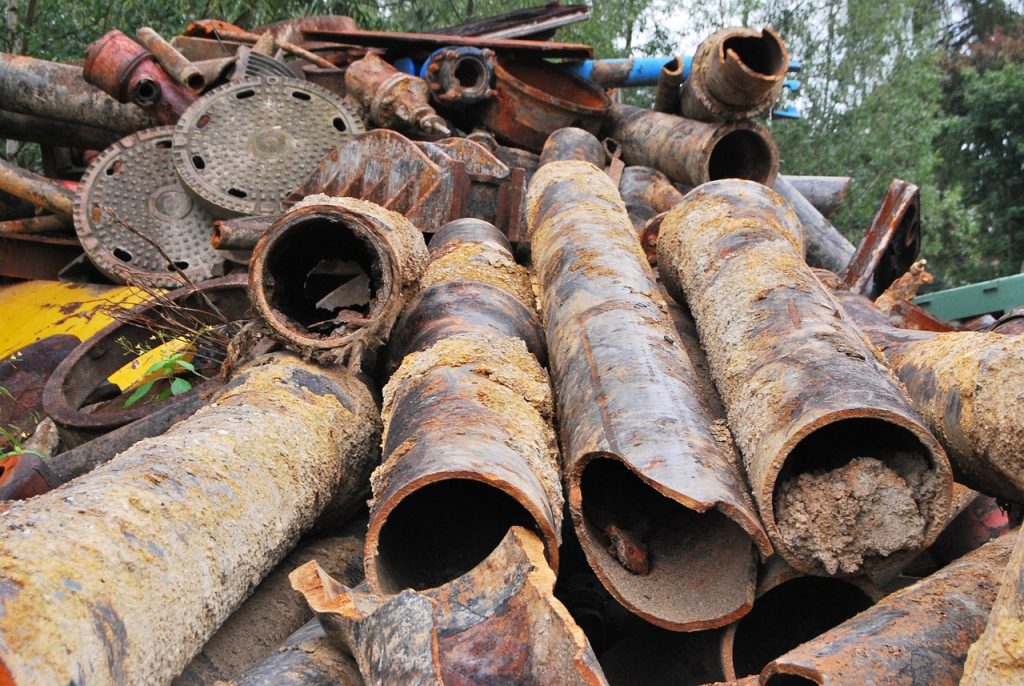- Assess the appliance to determine its recyclability.
- Check federal and state recycling laws for guidance.
- For large appliances like refrigerators, ensure they are safely drained of Freon and other chemicals at authorized facilities.
- Take smaller appliances to local recycling centers or retailers offering electronics recycling programs.
- Ensure proper disposal of hazardous components.
- Recycle the appliance components into their base materials for reuse.
- Support and utilize manufacturer-led recycling programs when available.
- Consider retailer recycling services when purchasing new appliances.
- Always aim for proper disposal to protect the environment and conserve resources.
Understanding the Need to Recycle Appliances Large and Small
High energy usage and fast-paced consumerism lead to an increase in discarded appliances, both large and small. Figuring out how to recycle these devices effectively and legally is now more important than ever before. Understanding the need to recycle appliances, such as refrigerators and other small electronics, is crucial to proper disposal and the conservation of our environment.
Both federal and state recycling laws dictate the rules and regulations for the recycling of various electronic devices. These laws are put in place not just to enforce the correct disposal methods, but also to promote the use of renewable energy sources wherever possible. The process to recycle appliances varies based on their size and type. Large items like appliances refrigerators require a different approach than smaller electronics.
The first step on how to recycle large and small appliances is to assess the appliance to determine whether it’s recyclable in the first place. Most appliances, large and small, like refrigerators, dishwashers, TVs, computers, and small electronics are recyclable and should not be disposed of in a landfill.
Recycling law mandates that large appliances like refrigerators and air conditioners must be taken to authorized facilities where they can be safely drain of the Freon and other harmful chemicals contained within, before they are recycled. Smaller appliances and electronic devices, on the other hand, can often be taken to local recycling centers or retailers that offer electronics recycling programs.
Understanding the need to recycle not only helps reduce energy usage and encourages the use of renewable energy sources but also aids in the conservation of our dwindling natural resources. Recycled appliances are often broken down into their component parts, which can then be used to create new products, decrease extraction of new raw materials, and save energy. Moreover, recycling large and small appliances can also lead to the creation of jobs in the recycling and manufacturing industries, providing a boost to the economy.
Why Recycling Appliances and Small Electronics Matters
Why does recycling appliances and small electronics matter, you may ask? Let’s break it down. When we recycle, it’s not just about reducing waste. It’s about using resources wisely and doing our part to preserve our planet for future generations. DTE Energy, a leading provider of electric services, drives home the importance of recycling electronics, emphasizing that we can’t just discard appliances willy-nilly. You’d be surprised at how much goes into making appliances large and small. It’s not just about the components that provide the necessary functions, but about the resources that are put into production.
Consider this focused piece of information states that when we discard an appliance, we’re not just discarding a useful item. We’re essentially throwing away valuable resources that could have been reused or recycled in some other way. These resources include metals, plastics, and even small amounts of precious materials such as gold and silver. If we fail to recycle, these resources end up in the landfill and eventually contribute to environmental degradation.
When we look at small appliances and electronics, the issue becomes even more pressing. These items often contain hazardous materials that can’t be disposed of in the usual manner. If they end up in the landfill, these hazardous materials could potentially contaminate the ground and water sources, posing a risk to public health and the environment. Effective recycling of these items helps to prevent this from happening.
So, how can you do your part? Start by understanding the process of recycling. Learn what can and can’t be recycled and where you can drop off your used appliances and electronics. Take advantage of local recycling programs and services provided by companies like DTE Energy. Always think twice before throwing away something that could be recycled. Even small changes can make a big difference.
In the end, recycling is about more than just reducing waste. It’s about using our resources responsibly and ensuring a sustainable future for our planet. It’s about making the choice to do what’s right, not just for us, but for future generations as well. It all starts with understanding why recycling appliances large and small matter.
The Process of Recycling Appliances and Its Impact on Energy Efficiency
The process of recycling appliances, both large and small, is critical in managing our energy usage. When we think about energy use in the home, we often overlook the energy assistance we get from our appliances. Large appliances like refrigerators and freezers are consistently in operation, contributing to our energy consumption. Smaller electronic appliances, although not as power-guzzling, often have a lifestyle that leads to wastage over time.
When we recycle appliances, we’re effectively limiting the need to manufacture new appliances, which, in turn, helps save energy and natural resources. The recycling process involves salvaging various components for reuse while properly disposing of harmful elements such as freon in refrigerators and freezers. Metals, plastic, and glass from recycled appliances can all be used to create new products, leading to less reliance on new raw materials. This lowers our carbon footprint significantly.
Subsequently, there’s the energy-efficient aspect of recycled appliances. If you’ve bought a refrigerator or freezer in the past decade, you’ve probably noticed the ‘Energy Star’ label. This energy assistance program encourages the production of more energy-efficient appliances. It’s partly because of recycling processes that these energy-saving models exist. As we continuously recycle appliances, we’re invariably encouraging manufacturers to produce appliances that are more energy-friendly, leading to better energy usage in our homes.
Recycling also offers an avenue for proper disposal of electronics and small appliances, which would otherwise harm the environment if left in our landfills. Poor disposal of electronic waste has a direct impact on environment and public health because of the heavy metals and other hazardous substances they contain. By recycling such waste, we are essentially protecting our environment and conserving resources.
In conclusion, whether it’s a large home appliance or a small electronic gadget, always aim to recycle. Not only does it help manage our energy usage but it also propels us towards a more sustainable future. When we choose to recycle, the environment, and in the long run, we stand to benefit.
How is a Recyclable Appliance Transformed into Recycled Material?
Most homeowners often wonder, “how is a recyclable appliance transformed into recycled material?” Well, be it large or small appliances, the recycling process is an intriguing yet essential cycle that begins right at home. But before we delve into the nitty-gritty of how appliances are recycled, it’s important to understand that not every appliance is recyclable. The trick is in distinguishing between items that are non-recyclable and recyclable.
Typically, small appliances and even larger ones like refrigerators, dishwashers, or washing machines consist of valuable materials such as metal and electronics. These are worth recycling back into the production cycle. The first step in the process involves separating these materials. This doesn’t happen at home, but in specialized recycling facilities where machines crush, shred, and sort the appliances into metals, plastics, and other materials.
So, what happens next? The shredded materials then go through another separation process to regain the purest form of different metals. In particular, the metal from the appliances is extracted, melted in a large furnace, and then reformed into sheets or blocks. The recycled metal is then transported back to the manufacturing line, where it’s used to create new appliances or other products. Awesome, right?
On the other hand, small appliances such as toasters, microwaves, or hair dryers often contain electronics that require particular attention during recycling. These electronics are typically removed, shredded, and sorted into their individual elements, like copper or silver, to be refined back into raw materials.
In conclusion, recycling appliances, whether large or small, not only helps in preserving our environment but also promotes energy efficiency. By reclaiming and reusing materials from recycled appliances, we reduce the need for new raw materials and hence less energy during production. So next time you think of tossing that old fridge or blender into the trash, remember there’s more value to it than you can imagine. Recycling is the way to go!
Steps to Recycle Your Old Appliances: A Comprehensive Guide
Recycling your old appliances, big or small, doesn’t have to be a daunting task. In fact, there are numerous practical steps to recycle your old appliances, making it a comprehensive process that’s easy to follow. Where you used to dispose your outdated or non-operational appliances will now become a critical circle in your lifestyle to recycle and make a positive impact on the environment.
Recycling begins right from the moment you decide to buy a new appliance. Whether it’s a big home appliance like a refrigerator or small appliances like a toaster, your commitment to recycle should start at this point. When you buy, inquire about recycling programs for your old appliances. Some retailers may have programs that either buy back your old appliances, or they arrange to have them recycled. This way you can make sure none of your old appliances end up at waste disposal sites unnecessarily.
Beyond the retailer, check with your city for any local recycling programs for appliances. Many areas have specialized facilities where your recycled appliance can be effectively processed. At these facilities, your appliance is safely broken down into components, valuable materials are salvaged, and hazardous ones are properly disposed. The process of recycling requires special safety and environmental precautions, which these facilities are equipped to handle.
One of the benefits of recycling is that many parts of our appliances can be successfully re-purposed and used in new productions. This process, which transforms your recyclable appliance into recycled material, contributes to saving valuable resources and energy. Plus, you’ll also be reducing the demand for raw materials, aiming for a more sustainable lifestyle both in and out of your home.
In a world increasingly becoming aware of the need to reduce, reuse, and recycle, you can do your part by learning how to recycle all your appliances large and small. Always remember, achieving a greener planet starts in your home with small steps like learning to recycle your appliances properly.
Recycling Appliances: Tips for Effectively Recycling Whirlpool Appliances
Recycling appliances, both large and small, isn’t as complicated as you might think, especially when it comes to popular brands like Whirlpool. If you’re preparing to buy new products and are unsure about how to effectively recycle your old Whirlpool appliances, here are a few tips to guide you. First, it’s important to note that many electronic appliances contain components that can be harmful if disposed of improperly. It’s hence crucial to use a recycling service that’s specifically geared towards appliances, to ensure they’re handled in an environmentally friendly manner.
Most cities offer recycling services that accept a broad range of appliances. So, whether you’re looking to recycle a large refrigerator or smaller electronic items like a mixer or toaster, you should find a local service to cater to your needs. If you’re unable to find one, don’t worry. Whirlpool themselves offer a recycling program for used appliances that has been implemented to ensure that consumers have a convenient and green method of recycling their products.
Before you recycle your appliances, prepare them appropriately. For instance, clean your appliance and remove any personal belongings. In the case of fridges and freezers, it’s especially important to defrost them before they’re recycled. It’s also useful to know that some recycling services offer pickup for larger appliances, making it even easier for you to recycle your old Whirlpool items.
Apart from benefiting the environment, recycling your appliances has economic benefits too. It encourages the production of recycled materials, decreasing the need for new raw materials and conserving energy. Additionally, recycling bulky items like appliances also reduces the demand for landfill space, leading to an even more significant positive impact on the environment. So, as you look to buy new appliances, remember, your old ones possess value in a wide range of ways. Applaud yourself for making the sustainable choice, and keep striving to be an environmentally conscious consumer.
When done right, recycling appliances, both large and small, makes a significant difference for our planet. Let’s all make a collective effort to keep our Earth clean and green.
Finding Recycling Locations for Your Used Appliances and Electronics
When you’re looking to recycle appliances, one of the first steps you need to consider is finding suitable recycling locations. Whether you’re dealing with large or small electronics, finding the right location is crucial. So, how do you spot these recycling centers? Here’s your guide on finding recycling locations for your used appliances and electronics.
Recycling locations for used electronic appliances are plentiful. Many public waste management organizations have a dedicated section specifically for large appliances and small electronics. A simple online search can often provide the required details. For instance, if you’re looking to recycle appliances such as a refrigerator or oven, you can contact your local waste management organization and ask for their electronics recycling program.
Beyond local waste management, there are independent organizations that specialize in recycling. They’re keen on making electronics and appliance recycling straightforward for everyday consumers. These recycling organizations offer drop-off locations, and some even offer pick-up services for larger items. So, whether it’s that old whirlpool washing machine or smaller items like toaster ovens, there are options available.
Shopping for new appliances? You could consider stores that offer recycling services alongside their sales. Certain appliance retailers, particularly those focused on energy-efficiency, offer recycling programs. When you purchase a new appliances, you can drop off your old one at the same location. Easy and efficient!
Another avenue is to consider manufacturer-led programs. Today, many electronics and appliance manufacturers are proactively engaged in recycling initiatives. Some offer buy-back or trade-in programs, with the old appliance being recycled rather than landfilled. Whirlpool, for instance, has programs aimed at recycling Whirlpool appliances explicitly.
In conclusion, there are many avenues to recycle appliances and electronics, both large and small. They play an essential role in conserving resources and promoting energy efficiency. Remember, you’re not just tossing something out; you’re giving it a new chance at life through recycling. So, whether you’re shopping for a new machine or just want to get rid of your old appliance, remember: Recycle.
Recycling Small Electronics and Appliances: Key Considerations
It’s important to understand key considerations when we’re talking about recycling small electronics and appliances. Recycling these items is not just about reducing waste, but also about conserving natural resources, promoting energy efficiency, and even contributing to food gardening activities. But how do we go about recycling these small appliances?
First off, check if the appliance can be recycled. Not all small electronics and appliances can be recycled due to certain components they contain. Also, look out for any hazardous waste identifiers in your appliances; these may require special disposal methods.
To recycle appliances successfully, make sure you properly dispose of them by taking them to suitable locations. These could be retailers that sell appliances, established drop-off points, or specific waste disposal points. A quick web search should help you find the closest recycling location for your used appliances and electronics. Ideally, these locations should be equipped to safely and effectively recycle your items into recycled material which can be reused in making new appliances.
Have an emergency plan in place. Sometimes appliances start leaking fluids or malfunction. In these cases, it’s better to be prepared than to have it end up in a landfill. Depending on the nature of the emergency, contact the manufacturer or a recycling center that accepts damaged items.
Lastly, make sure you’ve extracted all possible use from the appliance before deciding to recycle. Some appliances like those used for kitchen chores can be used in gardening activities. For example, compost produced from a kitchen waste decomposer can be added to soil in your vegetable or herb garden. This not only reduces waste but also enriches your garden naturally.
Keeping these factors in mind, we can make recycling a common, everyday activity that contributes positively to our environment and helps conserve natural resources. Remember- recycling isn’t just about waste disposal, but also about transforming that unwanted item into something useful for the planet and ourselves.




